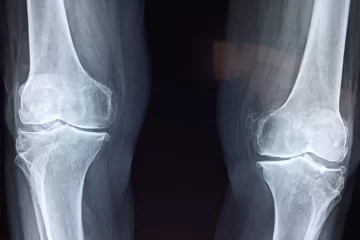Autistic Mothers
Published by Tony Attwood on
Autistic mothers
As clinicians, we work with families that have one or several autistic children and we have increasingly been able to recognise the subtle characteristics of autism in the profile of abilities of either or both parents. Considerable research has been conducted on autistic fathers but relatively less on autistic mothers. As we explore how autism can be effectively camouflaged by autistic women, we are now more able to identify autism in a mother who may also identify with the abilities and experiences of her autistic child and seek her own diagnostic assessment.
We will combine our extensive clinical experience in supporting autistic mothers with recent research studies to outline the challenges and benefits of being an autistic mother.
Challenges of being an autistic mother
The challenges are based on the core characteristics of autism, namely social abilities and sensory experiences, emotion regulation, communication with a range of agencies and services and self-confidence.
The social demands of being an autistic mother can include attending school and after-school activities, congregating with other parents, for example at the school gate or at a party, supervising play dates and creating social opportunities for their child or children. There can also be concerns regarding a tendency to be very direct and inadvertently offend other mothers. The autistic mother can find the many social experiences very stressful and exhausting, and, being sensitive, can pick up on the sense that she is not connecting with others in the way she would like to, leading to many hours of distress after socialising, analysing what happened and wondering how to experience a different outcome.
Sensory sensitivity can be a challenge in terms of the sudden sharp noises of a child shrieking, coping with the noise and chaos in the home caused by various family members, tactile sensitivity to toddlers climbing on you and the aroma of bodily fluids and substances.
There is also the difficulty of suppressing one’s own emotions when managing a child’s emotions, responding to a young child’s frequent need for affection and touch and ensuring each child receives enough affection from the child’s perspective. Having children can also reduce an autistic mother’s access to emotion recovery mechanisms such as solitude, creative activities, exercise, and engaging in a hobby or interest. There is also coping with the frustration of children interrupting activities and thoughts and children needing attention, conflict resolution and entertainment preventing the achievement of household responsibilities. There are many legitimate reasons for autistic mothers to feel exhausted and depressed.
A mother is often expected to liaise with various government agencies and services, especially if a child is autistic. We have found that autistic mothers can have difficulty communicating with professionals about their children and often feel they are misunderstood, isolated and unfairly evaluated by professionals and other parents. This can lead to extra scrutiny from child welfare agencies and not knowing whom to turn to for compassion and support.
We have found that autistic mothers are prone to lack confidence in their maternal abilities, being unsure if they can rely on intuition. There can also be a sense of perfectionism and self-criticism. There can be challenges in providing their child with guidance in social abilities due to their recognition of having been delayed in acquiring social and friendship skills. However, we have found a great motivation to learn parenting skills, often from literature and the Internet.
Research studies
In 2021 there were three studies published that explored the abilities and experiences of autistic mothers. These studies have confirmed many of our clinical observations. A study of 355 autistic mothers noted their perception of motherhood as an isolating experience, feeling that their parenting was being judged and having difficulty asking for support when they needed it (Pohl et al 2021). The same study confirmed difficulties with multi-tasking demands of parenting and domestic responsibilities. The study had a control group of non-autistic mothers, and the autistic mothers were more likely to report they were not coping. Autistic mothers also reported a high rate of post-natal depression (60%). However, 85% of autistic mothers reported that motherhood was rewarding to them.
A study of 20 autistic mothers which included 20 matched non-autistic mothers found that both groups expressed equally high levels of parenting stress and no significant differences between the groups in understanding their child’s strengths, abilities and needs and helping the child learn and develop (Adams et al 2021).
A detailed study using semi-structured interviews of 9 autistic mothers with at least one autistic child identified four subordinate themes (Dugdale et al 2021). The first theme confirmed that autism impacts parenting with distinct strengths and difficulties. A shared diagnosis and similarities created a ‘special bond’ with more depth and instinctive understanding of their autistic child’s needs, as illustrated in this quotation from a research participant I’m the one who can get through to him.
They felt they were better able to translate difficulties and mediate conflicts. They also expressed that they struggled to socialize with other parents and manage sensory sensitivities while parenting. There was the added dimension of feeling guilty that they had passed on something possibly genetic.
The second theme was a battle to achieve the right support. They often felt misunderstood, judged, and dismissed. Professionals assumed they were aggressive and did not appear to take their concerns seriously. One autistic mother said people really need to listen to autistic parents… we’re not thick, we see things from a different perspective. The mothers did find greater acceptance from professionals that understood autism. They also sought support from their non-autistic partner to accommodate aspects of parenting they found difficult as in the quotation …he was able to do the make-believe stuff that I couldn’t do.
All participants achieved recognition of being autistic after becoming a parent and the third theme was the effects of having a diagnosis which led to a re-processing of participants’ experiences in a positive way. An example was coping with change and cognitive flexibility which they had struggled with, and the diagnosis helped them become more understanding and accepting of this characteristic of autism. The fourth theme was the ups and downs of parenting with the downs including not fitting into the normal mum’s club and coping with tactile and auditory sensory sensitivity. However, the ups were a sense of intense connection, enjoyment, and rewards.
Benefits of being an autistic mother
Our clinical experience is that there are many benefits to being an autistic mother. These include creating a home environment where neurodiversity is accepted and admired, as well as encouraging knowledge, creativity, and originality in problem-solving. There is empathy for being bullied, teased, socially rejected and humiliated and a determination to prevent their autistic child from having those experiences.
Autistic mothers ensure there is consistency and routine in daily activities and expectations. There is a preference for logic rather than obedience and seeking opportunities to boost their autistic child’s self-confidence. Autistic mothers can easily explain their autistic child’s social and sensory perception to peers and teachers and encourage an understanding and acceptance of autism that may not have been experienced in their childhood.
Resources and references
We recommend the book Spectrum Women: Autism and Parenting by Renata Jurkevythz, Maura Campbell and Lisa Morgan published in 2020 by Jessica Kingsley Publishers www.jkp.com
Adams et al (2021) Autism in Adulthood 3
Dugdale et al (2021) Autism 25, 1973-1984
Pohl et al (2021) Molecular Autism 11:3


